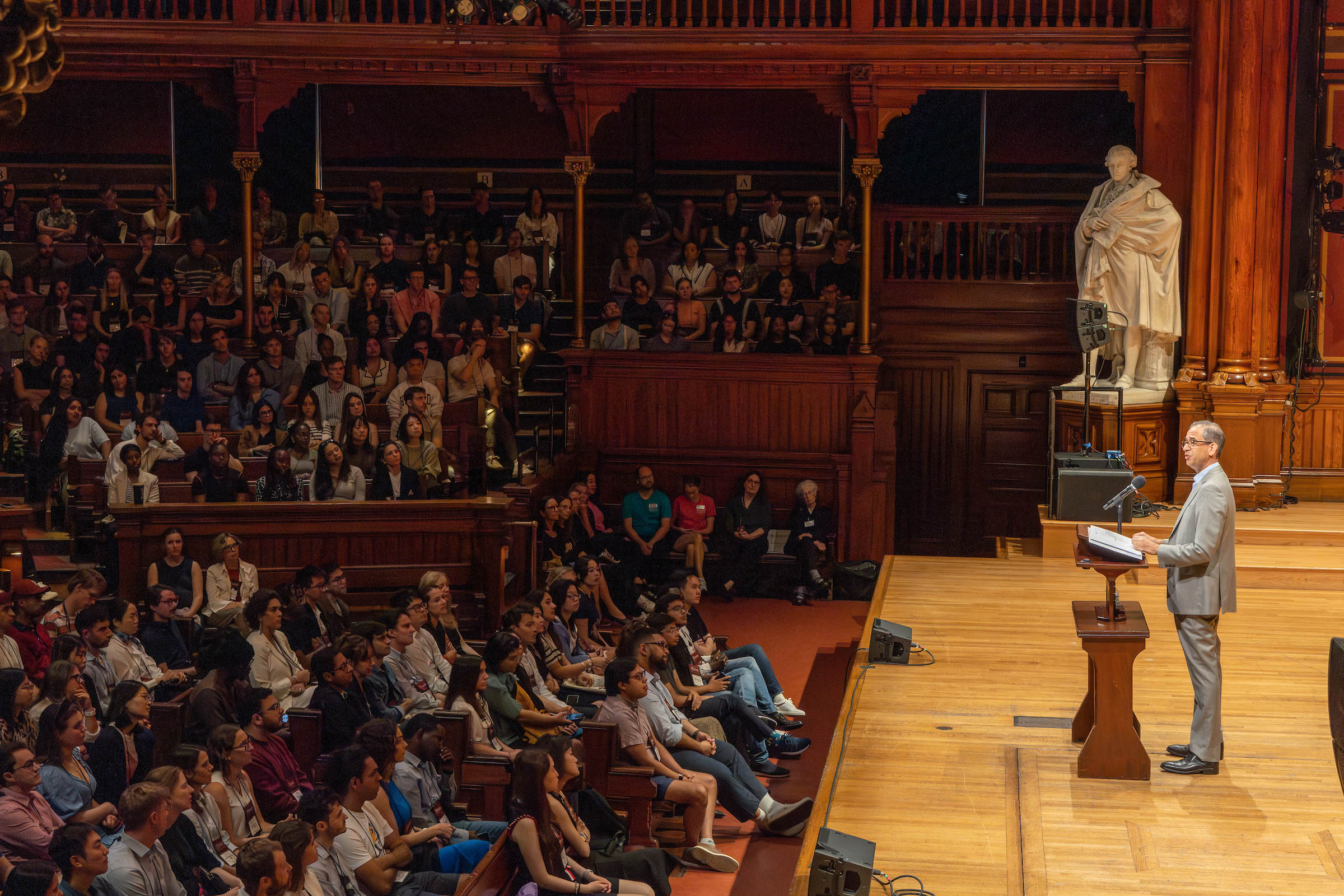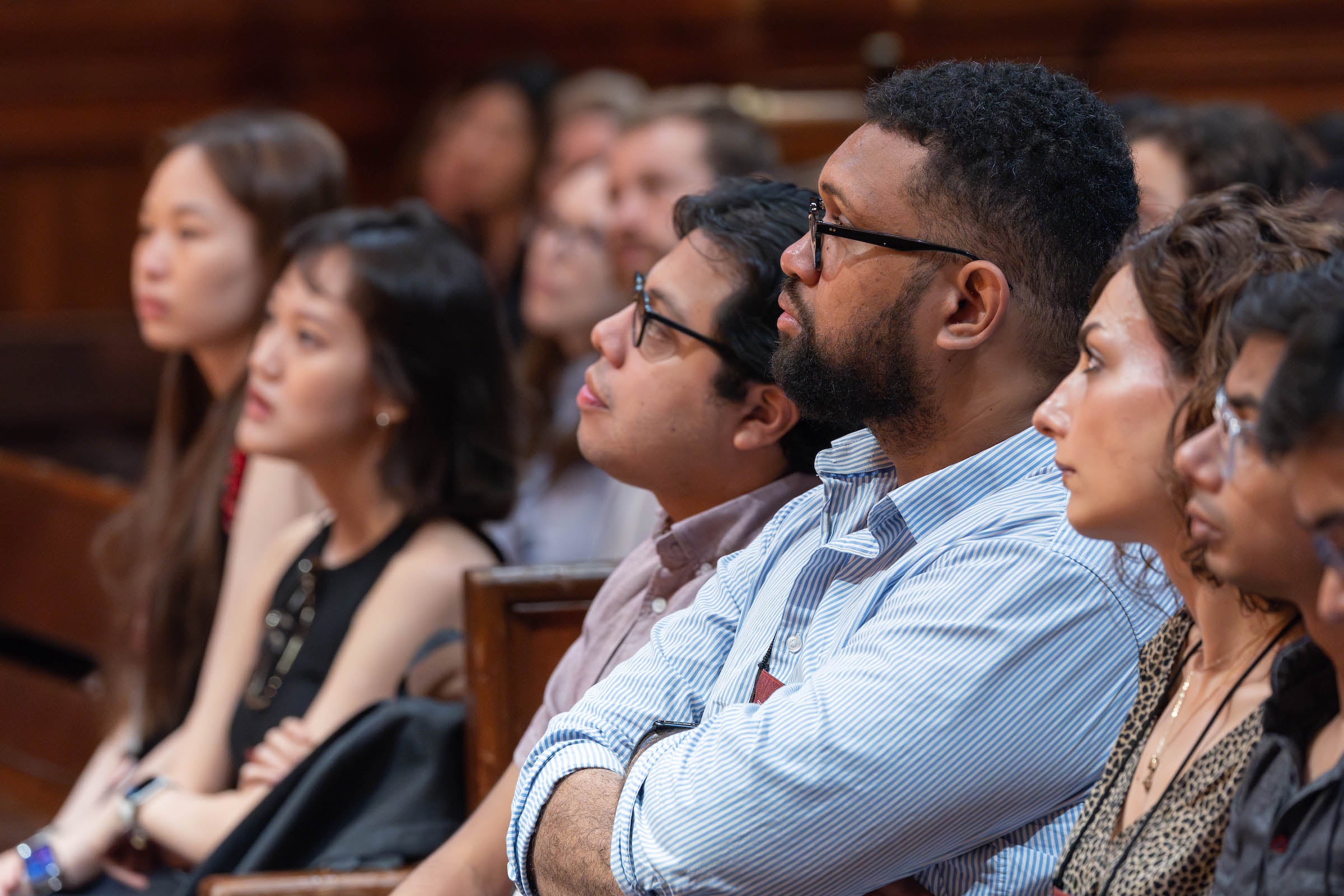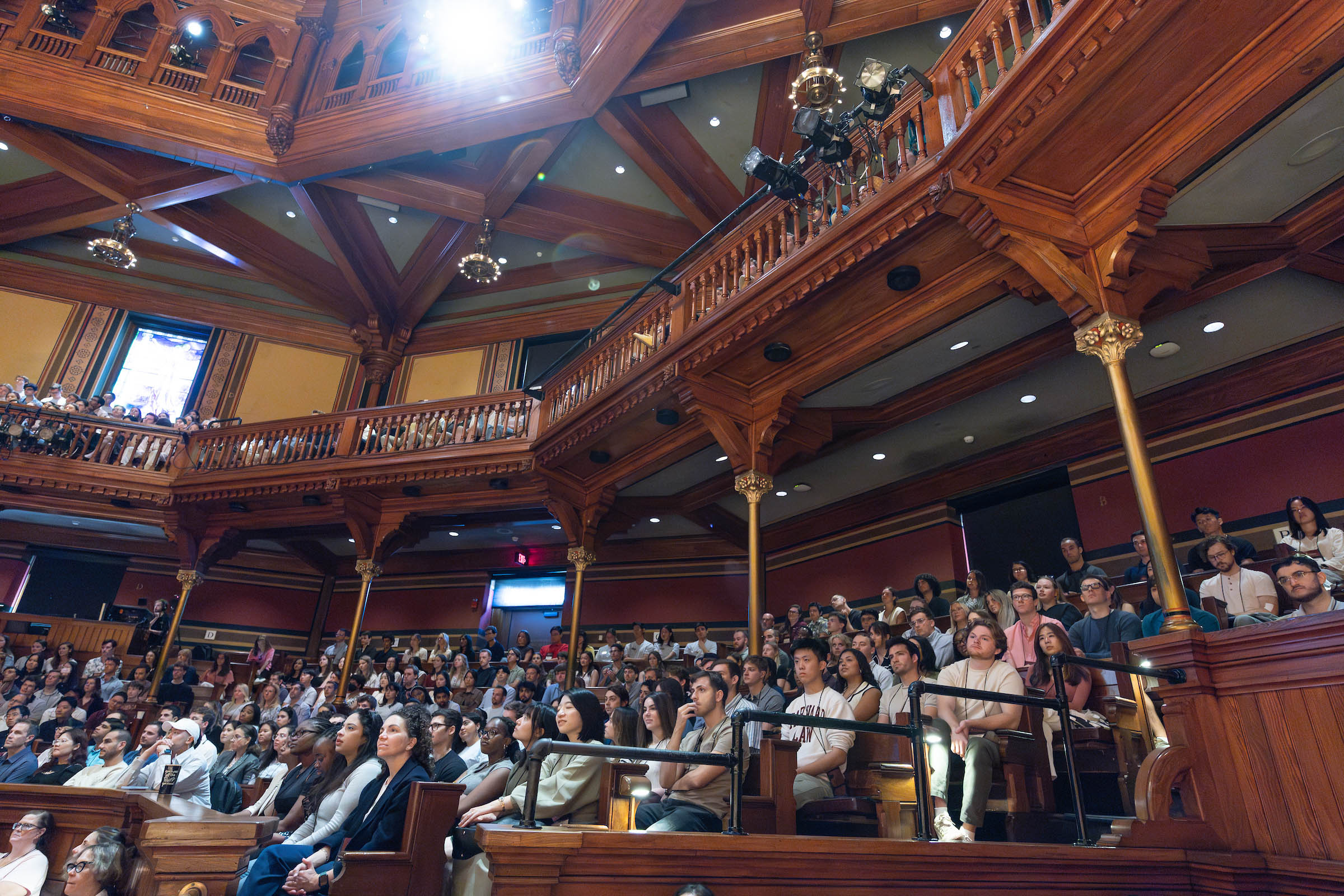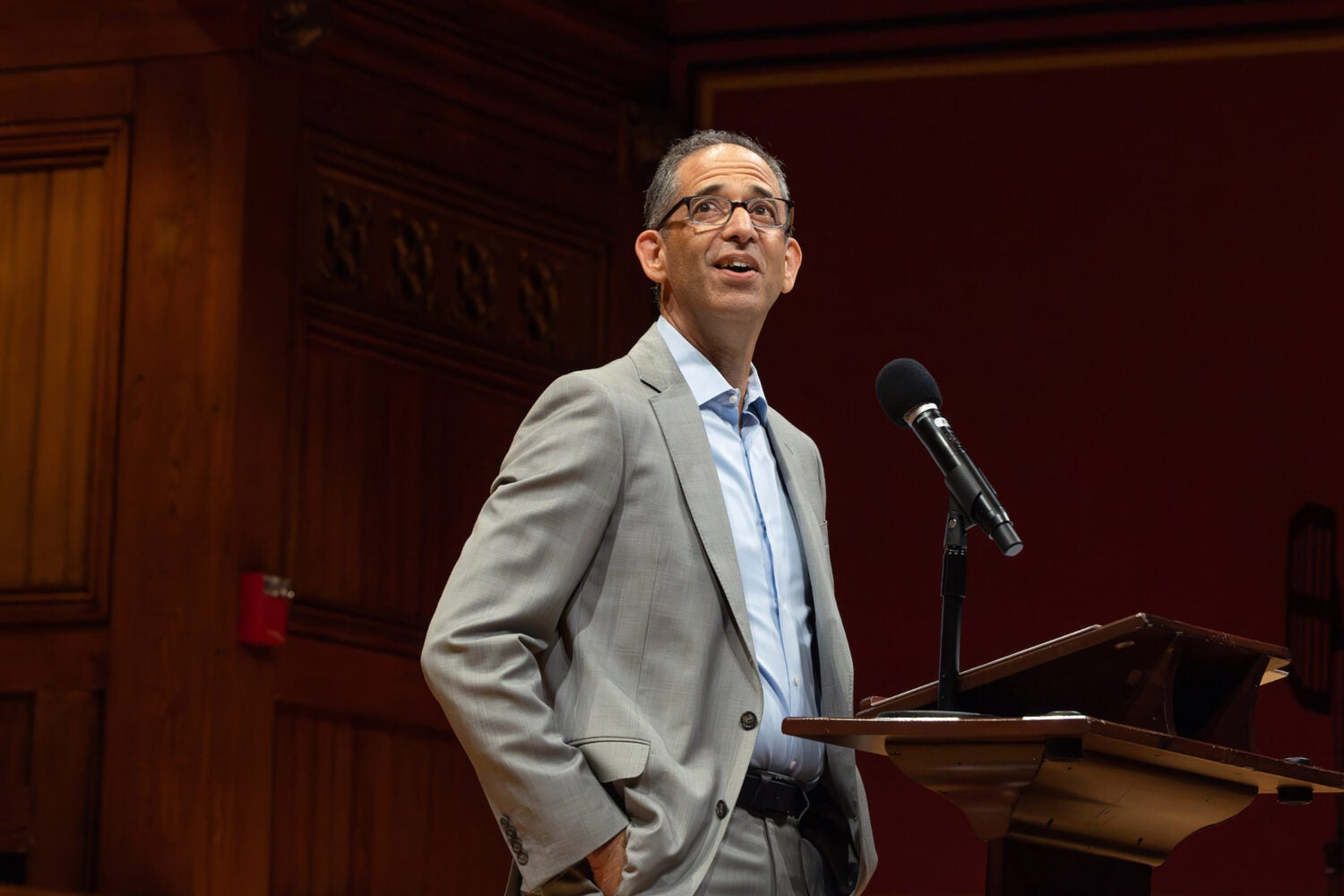You belong here and your voice matters.
That was the message shared by interim Dean John C.P. Goldberg on Friday as he welcomed more than 700 new students to Harvard Law School. In remarks that touched on topics ranging from the American Revolution to social media, Goldberg started and ended with one key message: Whatever trepidations Harvard Law’s newest class of students might be feeling about starting or continuing their law school journeys, each of them was exactly where they ought to be.
“Each of you belongs here,” Goldberg told the nine Doctor of Juridical Science, 189 Master of Laws, and 560 Juris Doctor students who filled nearly every seat of Harvard’s Sanders Theatre. “Beginning today and for the rest of your lives, this is your Harvard Law School.”
During the annual kickoff event for the fall term, Goldberg, the Carter Professor of General Jurisprudence, discussed this important moment of transition in the students’ lives and shared a few pieces of advice on how to thrive in law school.
He began by drawing his audience’s attention to their surroundings. Built in the 1870s and glowing from the warm tones of old wood and stained glass, Sanders Theatre has been a center of Harvard life for nearly 150 years. “Take a moment and look around,” Goldberg urged, before pausing briefly as hundreds of students craned their necks to capture the architecture surrounding them.
“If you are thinking to yourself, ‘Wow, this place screams Harvard,’ you’re right,” he said to laughter. Having hosted generations of students and countless world leaders, the lecture hall and performance space is suffused, he noted, with history.
Flanked by the imposing statues of two colonial-era lawyers who opposed British rule of the American colonies, Goldberg called one out for special acknowledgement. Josiah Quincy, he recounted, had not only served both as Boston’s mayor and as Harvard’s president, but the late statesman had also joined future President John Adams in defending the British soldiers involved in the infamous Boston Massacre. “That’s a very lawyerly thing to do: providing even pariahs with the defense to which the law entitles them,” he explained.



Goldberg argued that the venue was akin to a portal through which the incoming law students were passing, and from which they would emerge metamorphosed. “When you leave this building, you will have passed through the portal. You will be a different person,” he said. “You will be a member of the Harvard Law School.”
And as members of the latest generation of Harvard Law students, it would be incumbent upon them to emulate the habits and practices of the many great lawyers who have passed through that space before.
“Lawyers,” Goldberg explained, “approach problems in a different way, using different language and different methods. … At its best, lawyers and law help to sustain the fragile political ecosystem of liberal democracy. They do so by giving us a common framework through which to resolve, or at least manage, important disputes and problems. … Learning the law is about appreciating and accepting our differences, while finding ways to resolve them peacefully and constructively.”
“Lawyers and law help to sustain the fragile political ecosystem of liberal democracy … Learning the law is about appreciating and accepting our differences while finding ways to resolve them peacefully and constructively.”
During the second half of his talk, Goldberg offered his audience several practical tips for thriving at law school and beyond. First, he predicted that nearly every student would, at some point, ask themselves the same question he had asked himself when he began law school and compared himself with some of his seemingly more self-assured peers: “Am I out of my depth?” For the students seated in front of him, the answer, he said, is unequivocal. “No, you are not.”
“As our provost and former law school dean, John Manning, likes to say — quoting his very wise mother — don’t judge your insides by other people’s outsides,” Goldberg recounted. “Everyone here will have low moments and high moments, moments of confidence and moments of doubt. You are all here for a reason, because you belong here. Each of you is ready to be a great lawyer.”
One aspect of being a great lawyer, he noted, is the ability to listen to and engage with opposing perspectives. “As difficult as it may be, you must consider these other views carefully instead of dismissing them,” he explained. “Stick to your own considered views, by all means. But listen openly to the opposing arguments, be prepared to justify your conclusions with reasons and facts, and do not demean those with whom you disagree just because you disagree.”
Engaging with others on challenging, and sometimes disagreeable, topics is not just the hallmark of being a great lawyer, Goldberg noted, but also of belonging to an academic community. “As one of Harvard’s guiding documents tells us, ‘[b]y accepting membership in the university, an individual joins a community ideally characterized by free expression, free inquiry, intellectual honesty, respect for the dignity of others, and openness to constructive change.’”
“From this moment forward, you are a part of an institution committed to these values,” Goldberg said. “Observing them is the only way we can learn, teach, research, and serve — serve each other, as well as the clients and causes you’ll encounter along the way.”
Want to stay up to date with Harvard Law Today? Sign up for our weekly newsletter.
